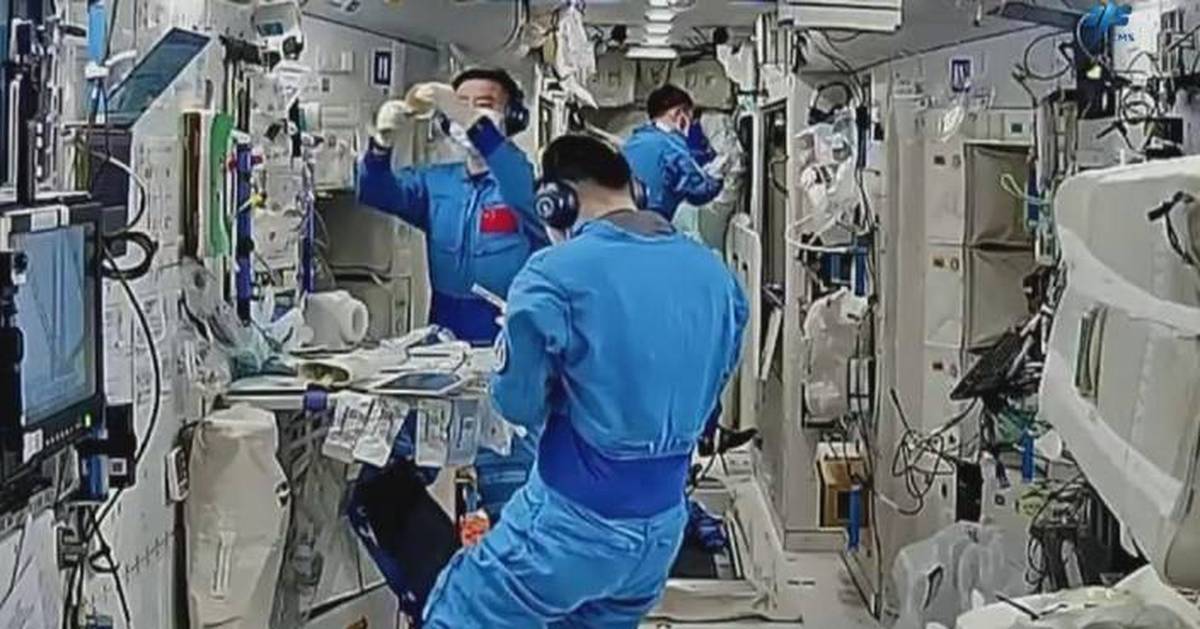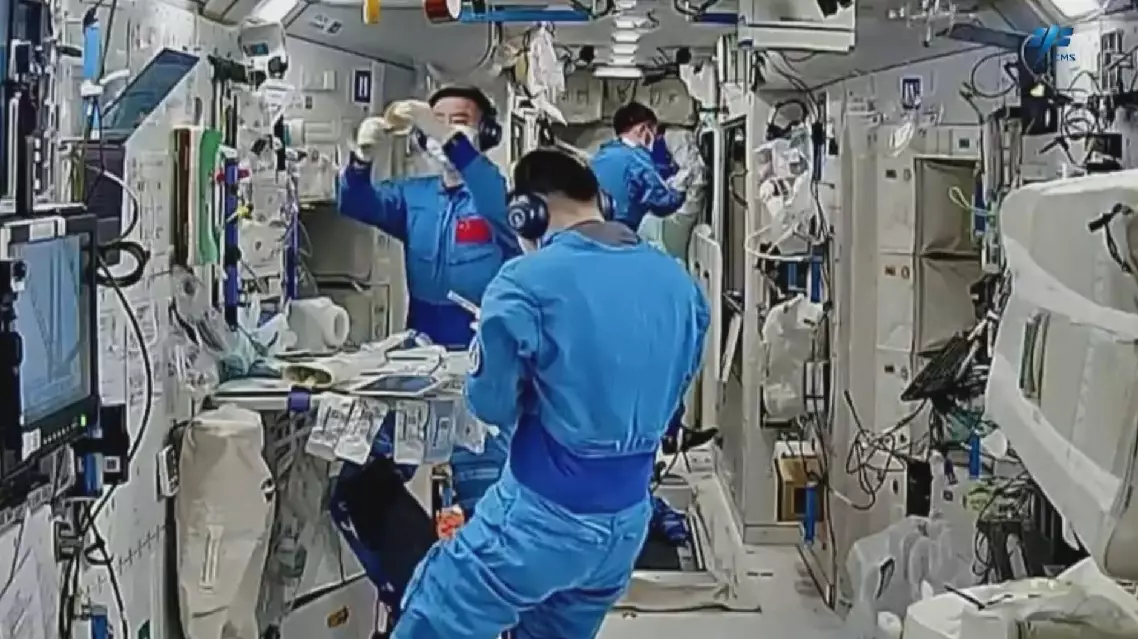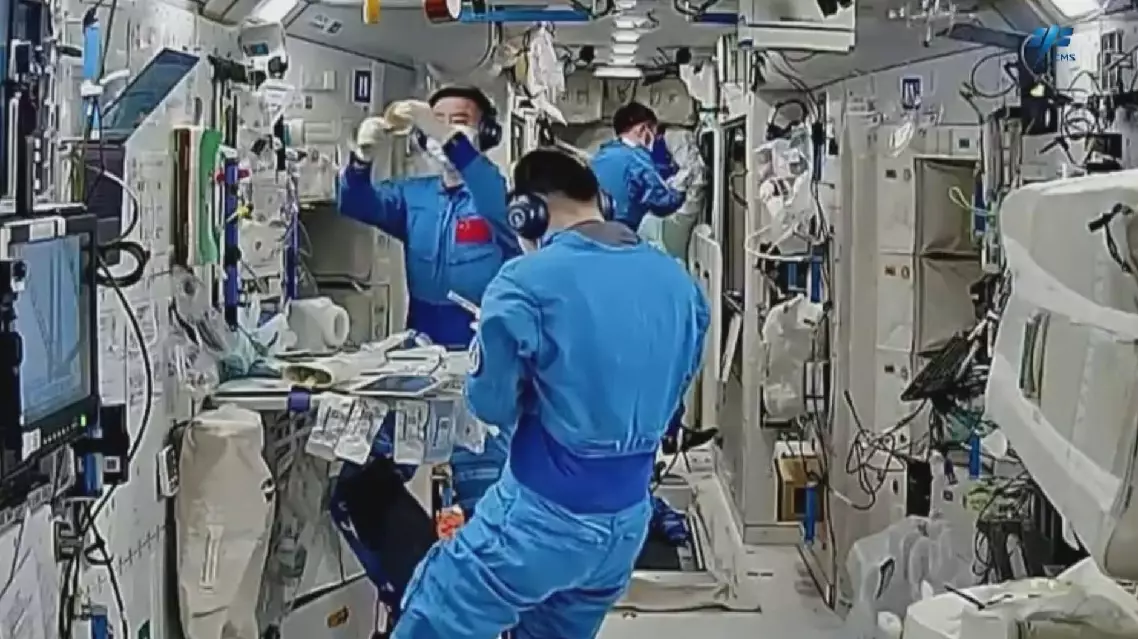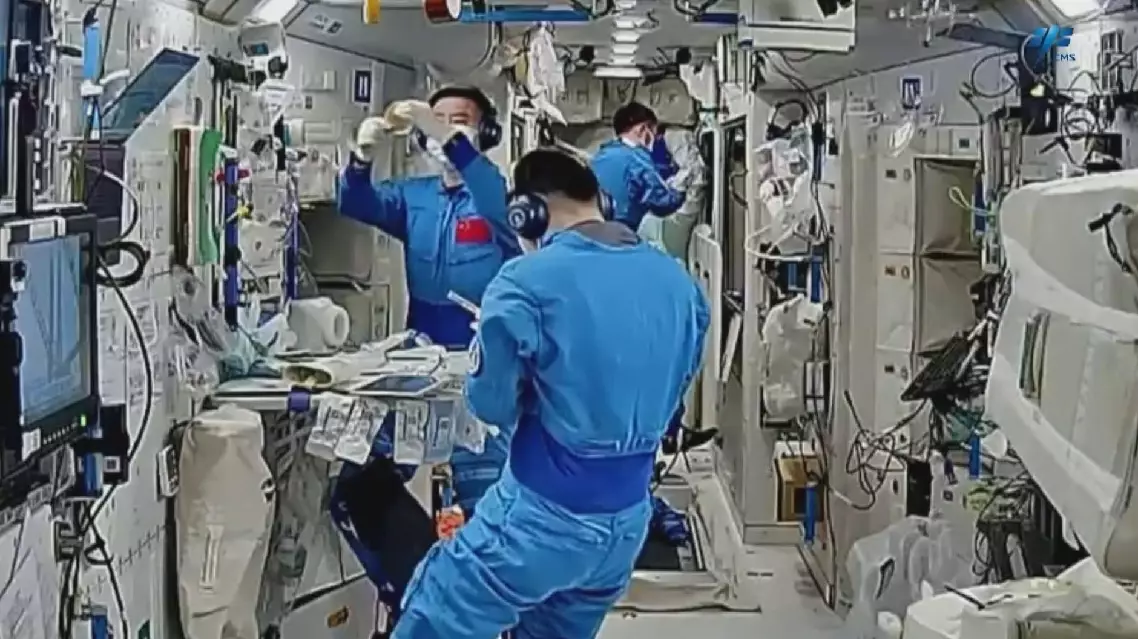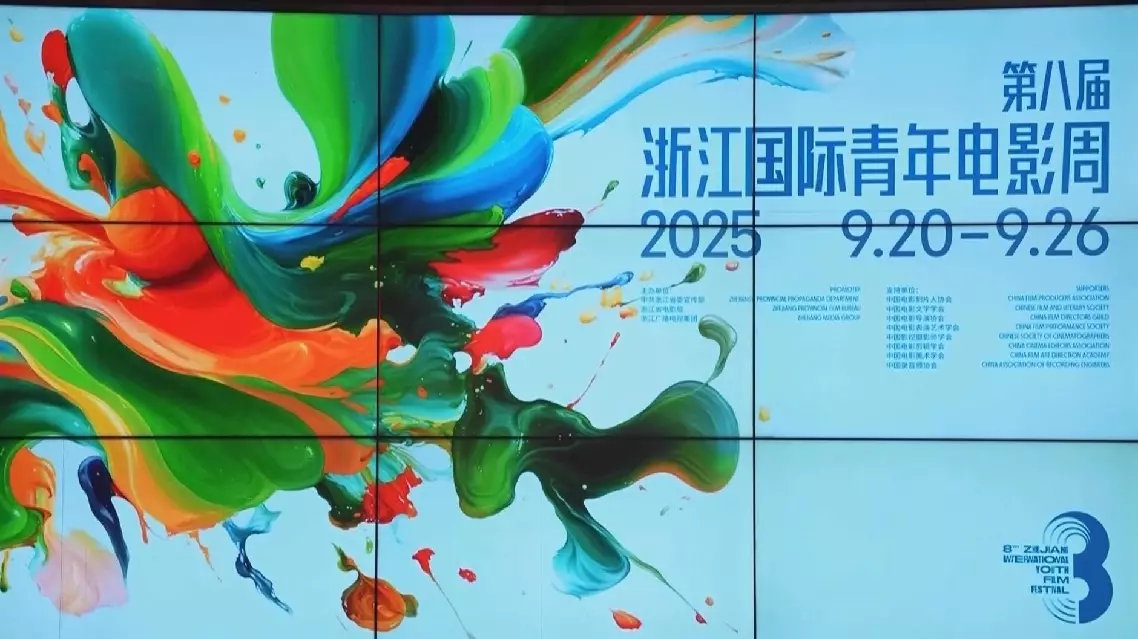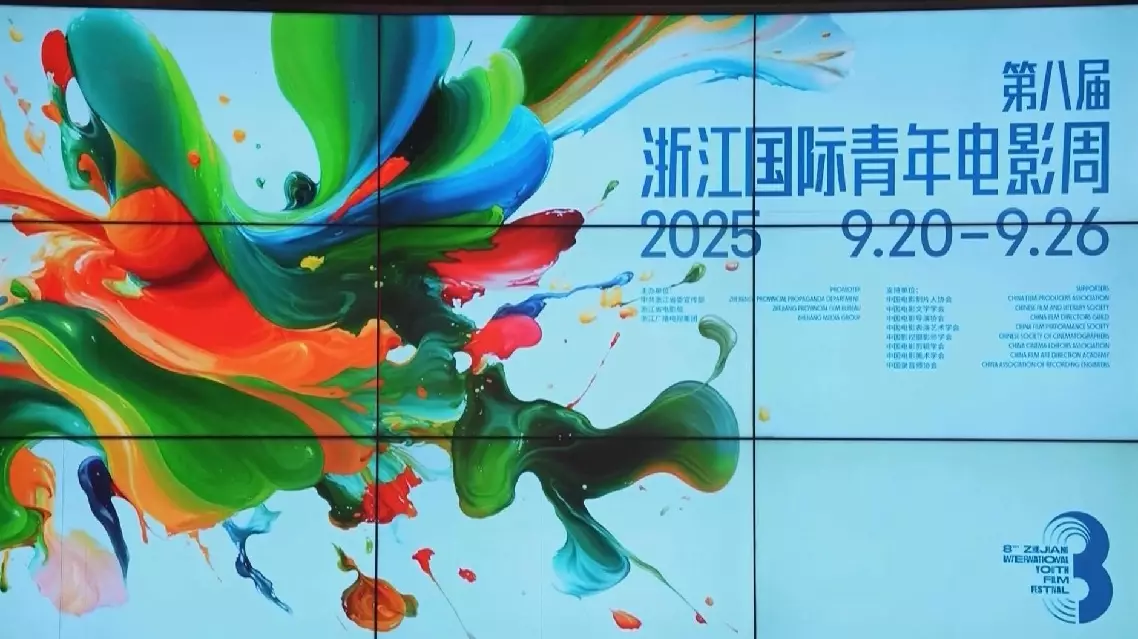The Shenzhou-20 crew aboard China’s Tiangong space station, composed of astronauts Chen Dong, Chen Zhongrui, and Wang Jie, have been steadily carrying out a range of scientific experiments, station management tasks, and health procedures over the past week, according to the China Manned Space Agency.
Last week, the crew completed several key tasks, including bringing the external materials exposure experiment device back into the station and retrieving and storing the third batch of experimental samples.
The external exposure experiment is designed to take advantage of the extreme environment outside the space station to investigate how material structures are damaged, how their performance degrades, and how functional failures occur. The findings aim to support the future space applications of advanced materials, such as those used in large deployable structures like flexible solar panels, lubricants for space mechanisms, building materials for lunar bases, and neutron-shielding materials for precision electronic equipment.
In the field of space medicine, the crew conducted sliding motion tests using a fine-motion measurement device. The data collected will support research on changes in astronauts’ fine motor control and the mechanisms of adaptive learning under microgravity conditions.
In the field of microgravity physical sciences, experiments related to combustion in microgravity are progressing in an orderly manner. A sealed combustion chamber provides a controlled environment for these experiments. By replacing the interchangeable experiment modules inside the chamber, the setup can support combustion tests with gaseous, liquid, and solid fuels.
The crew also conducted regular microbial monitoring within the station, sampling air, surfaces and water systems to identify microbial species and colony formations and evaluate their growth conditions. This work provides crucial data to support microbial control measures aboard the space station.
In terms of station management, the crew completed the organization and transfer of cargo packages within the Wentian airlock module and the Mengtian lab module, along with the inspection and management of extravehicular suits, medical supplies, and general onboard materials.
For their physical health, the crew carried out scheduled cardiac and vascular ultrasound examinations, and used a neuromuscular stimulation device to promote muscle relaxation and prevent atrophy, key measures to counteract the physiological effects of microgravity.
Chinese astronauts conduct science, health experiments aboard Tiangong Space Station
Chinese astronauts conduct science, health experiments aboard Tiangong Space Station
Chinese astronauts conduct science, health experiments aboard Tiangong Space Station
The 8th Zhejiang International Youth Film Festival kicked off in Hangzhou City of east China’s Zhejiang Province on Saturday.
Encouraging the world to “Let youth achieve their film dreams,” the event features five sections, including pitches and investment, screenings, and VR experiences.
More than 100 filmmakers and industry insiders are taking part in the festival, which will continue through Sept 26.
Produced by China Media Group (CMG), China’s first 8K movie shot in space – “Shenzhou 13” – was screened as the opening film.
8th Zhejiang International Youth Film Festival opens in Hangzhou
8th Zhejiang International Youth Film Festival opens in Hangzhou

